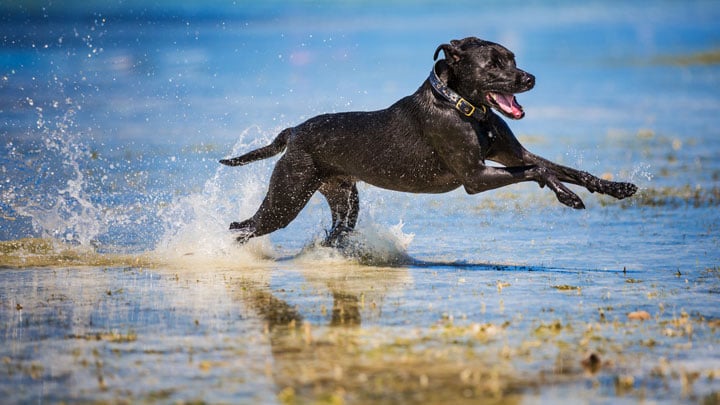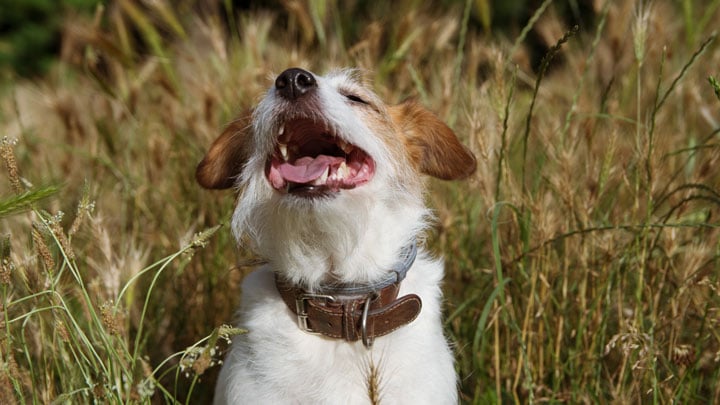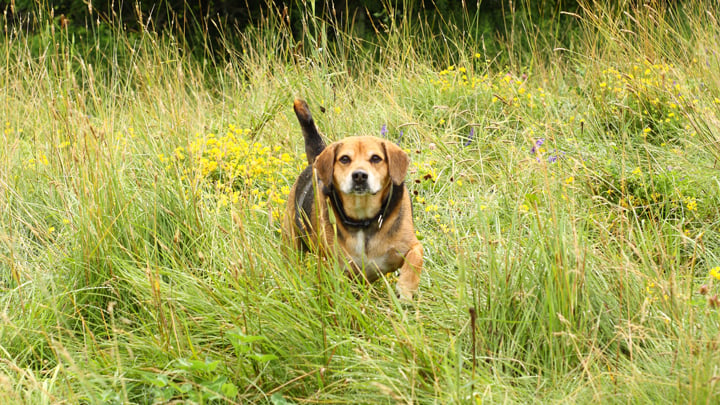Blondies
Nov 15
The summer months mean that you get to spend a bit more time outside. Read our advice on making sure your dog stays happy and safe.
Summertime
With many schools already broken up for the Summer holidays and restrictions being eased, many people are looking forward to a great Summer – we just need the weather and we’ll be good to go.
For many travel plans will still be a bit different this year and some may still choose to spend their summer in the UK. This presents more opportunities to enjoy a break or a day out with your dog. We’ve pulled together some advice that will help you to keep your dog happy and healthy this summer.
Fun in the water
Many dogs can’t resist the urge to jump into an inviting lake or pond, especially if the sun’s out and they’re feeling warm.
Can your dog swim?
It’s a myth that all dogs can swim because they do doggy paddle. If it’s the first time that your dog will be playing in or around water, make sure they start out in very shallow water, so you can help if the need arises. If your dog isn’t keen then don’t force the matter, if they see other dogs having fun – they might well be tempted to join in.
Blue-Green Algae
This is highly toxic to dogs and can be found in some ponds and lakes across the UK. It looks like a green algae forming on the top of the water. We’ve got some advice on how to protect your dog from blue-green algae.
On the beach
If you’re spending time at the beach, it’s best to stay with your dog as they enjoy splashing around. This way, you can keep an eye on the tide coming in or the size of the waves. You can also make sure that your dog isn’t drinking too much seawater. The high salt content of seawater can cause problems for your dog’s stomach. Try and make sure they have had a good drink of fresh water before they start paddling.
Rock pools provide a great opportunity to explore but look out for sea urchins and jellyfish that can give a nasty sting if your dog gets too close. Symptoms of a sting include vomiting, swelling, excessive licking and difficulty breathing. If you suspect your dog has been stung, contact your nearest vet immediately.
Keeping cool
If you’re just having fun at home, garden sprinklers can provide you and your dog with hours of entertainment. They’ll love running around and splashing about with you and all with the added benefits of fresh water to drink and keeping cool.

On dry land
If you are going to be using the summer to explore more of the UK or are just walking more in your own area, there are a few things to be aware of.
Keep your dog on a lead
If you’re exploring an area for the first time, we’d recommend that you keep your dog on a lead until you’re sure of your surroundings and are certain that it’s safe. If your dog has great recall that’s great, but if they aren’t then it’s sensible to keep them on the lead at all times. Just in case they are ‘spooked’ by something or somebody, you need to know they aren’t going to run away.
Coastal Walks
Always keep your dog on a lead when walking along coastal cliffs and give yourself plenty of space away from the edge; even the most agile dog can trip up on an uneven surface.
Many British coastlines are a haven for native wildlife, including endangered seabirds like puffins. Prevent your dog from getting too close and disrupting their habitat and of course be mindful of picking up after your dog in all situations.
Grass seeds
If you’re walking inland and venture into overgrown fields or parks, you should check your dog afterwards for grass seeds or better still avoid these areas altogether.

Bites and stings
Bee and wasp stings
Bees and wasps are essential for pollinating our natural environment. While we’re aware of the risk of being stung, this isn’t the case for dogs, and flying insects are often a source of curiosity and entertainment.
Your dog may get stung at some point and most of the time, a sting will cause only minor pain and irritation. Don’t try to pick out the sting with tweezers, as this can squeeze more venom out. Instead, use a rigid piece of card to gently scrape the stinger away. Wrap an ice pack in a towel and apply to the area to reduce swelling and ease the pain.
However, if your dog is stung several times inside the mouth or throat it can be serious and will require a trip to your vet. Just like humans, some dogs may have a severe allergic reaction to the chemicals in the sting.
Symptoms of an allergic reaction include:
- General weakness
- Breathing difficulties
- Excessive swelling
If your dog is having an allergic reaction, contact your vet immediately, as the swelling can block the airway and become serious.
Adder Bites
In certain areas of the UK, there is a risk of your dog being bitten by an adder. Adders aren’t known for their aggression, they’ll only bite in self-defence and this can be a problem for curious dogs that come across them when they’re bounding about.

Ticks
Ticks are most prevalent between May and October and tend to be found in grassy, wooded areas. It’s important to thoroughly check your dog for ticks after walks in these areas.
If you spot a tick, don’t be tempted to remove it with tweezers; ticks latch on tightly and you can end up removing its body but leaving part of the mouth, causing irritation and infection. You can purchase a special tick remover or talk to your vet. If a tick is removed within 24 hours, infection can be prevented.
To protect your dog, use an effective parasite treatment that kills ticks within two days. Your vet will be able to prescribe a tick treatment that’s best suited to your dog, read more about ticks.
In the garden
It’s also worth considering the summer risks when you’re closer to home.
Barbecue Season
The great British barbecue is synonymous with summer, but it’s important to be mindful of the hazards it can create for your dog.
Keep charcoal and gas canisters well out of paw’s reach, and don’t let your dog get too close to the hot barbecue itself; charcoal barbeques can spit unexpectedly.
The abundance of food around – particularly barbecued meat – will be irresistible to most dogs, but don’t be tempted to overfeed them. Cooked and uncooked fat trimmings can cause pancreatitis, whilst bones can splinter and become lodged in your pet’s mouth. Don’t forget that onions are highly toxic to dogs too.
With all this in mind, let your friends and family know not to feed their leftovers to the dog, no matter how much they plead. Instead, have a few healthy dog treats nearby to distract them.
Gardening
Keen gardeners will take advantage of warmer weather, but if you’re tackling some of the bigger jobs, such as mowing the lawn or trimming hedges, it’s a good idea to keep your dog inside.
While many dogs will be scared of the loud noise, others may decide to investigate and have a sniff around dangerous garden tools and end up with cut noses or paws.
Pesticides, fertilisers, weed killer and slug pellets can also be highly toxic, so it’s essential to keep your dog from exploring areas of the garden where these have been used. If you have a compost heap, it will be full of bacteria, you should think about a way to ensure that your dog doesn’t start digging around in it.
Lungworm
Lungworm is a type of parasitic worm that can infect dogs. It is found in slugs and snails and the trails that they leave. It can be fatal for dogs, but you can protect your dog by ensuring that this is covered in their regular parasite care. Read the full article by clicking the button below.
